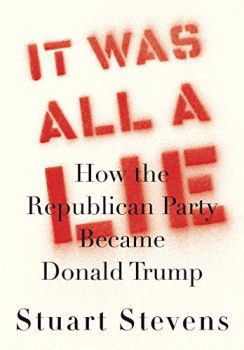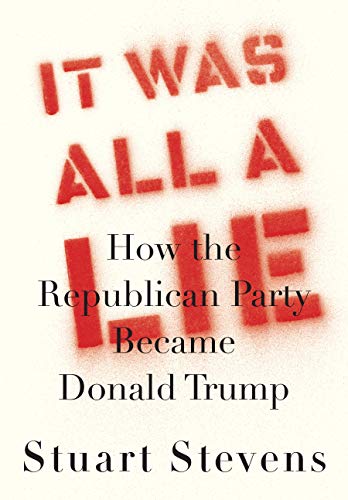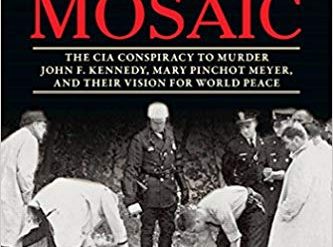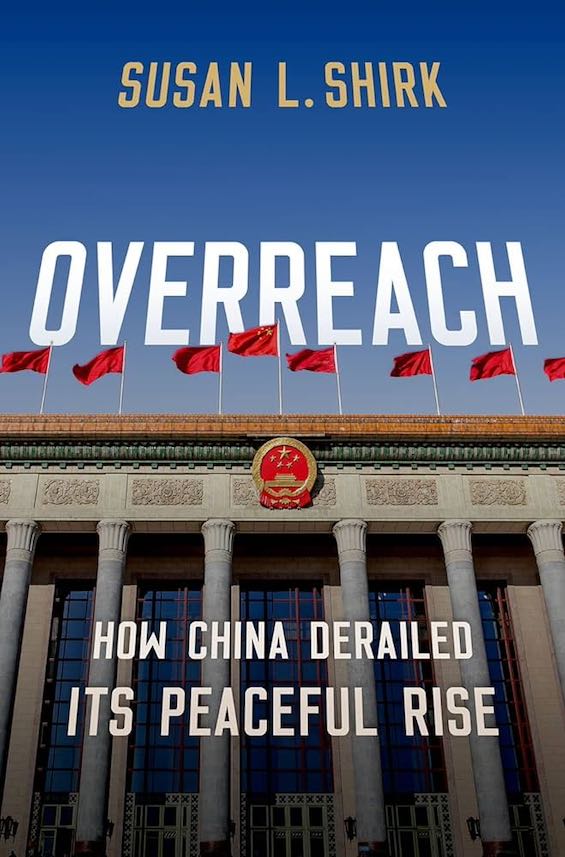
Amazon lists more than 1,000 books about Donald Trump. And only two US Presidents—George Washington and Abraham Lincoln—account for more (over 2,000 in each case). But Trump hasn’t even completed a single term in office, and there are lots more books to come. One of the latest, and in its way most surprising, is the elaborate mea culpa, It Was All a Lie: How the Republican Party Became Donald Trump, by the veteran Republican political operative Stuart Stevens. The Mississippi-born Stevens, a remarkably successful political consultant for decades, is one of the most prominent members of the Lincoln Project. So, few can be surprised that he would write a highly critical book about Donald Trump. But what is surprising is that Stevens writes not to add to the rising chorus of disdain about the President’s misbehavior and poor judgment but to eviscerate the political party to which the author has dedicated his life.
Estimated reading time: 4 minutes
It Was All a Lie: How the Republican Party Became Donald Trump by Stuart Stevens (2020) 257 pages ★★★★☆
Immutable truths turned out to be marketing slogans
Make no mistake: It Was All a Lie is Stevens’ mea culpa. In the book’s first paragraph, he writes, “I have no one to blame but myself. I believed. That’s where it all started to go wrong. I was drawn to a party that espoused a core set of values: character counts, personal responsibility, strong on Russia, the national debt actually mattered, immigration made America great, a big-tent party invited all.” And in the following 250 pages, he demonstrates how the Republican Party betrayed every one of those values—not starting with the election of Donald Trump but more than half a century ago. “What a fool I was,” Stevens laments. “All of these immutable truths turned out to be mere marketing slogans.” And through the years those slogans lost progressively more meaning until, in 2016, the Republican Party became Donald Trump.
To cite just one flagrant example, Stevens focuses on the perennial Republican complaint about “tax-and-spend” Democrats and the national debt they run up. “In the post-World War II era, Republican presidents have contributed far more to the deficit than Democrats.” And that’s just one element in the list of lies that Stevens finds in Republican platforms and campaigns.
In strong, highly quotable prose, Stevens makes the case that “There is nothing strange or unexpected about Donald Trump. He is the logical conclusion of what the Republican Party became over the last fifty or so years, a natural product of the seeds of race, self-deception, and anger that became the essence of the Republican Party.”
How the Republican Party became Donald Trump
It Was All a Lie will disappoint any reader looking for embarrassing insider information from the Trump White House. (Stevens was a “Never-Trumper” in 2016 and is, without question, persona non grata there.) What the author offers that’s new (at least to me) is an examination of the speeches, policy memos, and political decisions that set the Republican Party on a course that, he implies, made Donald Trump inevitable.
- Stevens points to a “1961 speech in Atlanta by Barry Goldwater to a gathering of Southern Republicans. ‘We’re not going to get the Negro vote as a bloc in 1964 and 1968, so we ought to go hunting where the ducks are,’ he declared.” And Goldwater than proceeded to spell out precisely how the Republican Party could appeal to segregationist white Southerners. In 1961.
- Quoting at length from “an October 5, 1971, White House Memorandum from ‘Research’ to the White House chief of staff, H.R. Haldeman, headed ‘Dividing the Democrats,'” Stevens demonstrates how the notorious “Southern Strategy” of Nixon’s 1972 reelection campaign came about. The memo was written by Pat Buchanan and Kevin Phillips. It was “based on the assumption there was little Nixon could do to attract black voters, so the focus should be on utilizing black voters’ support of Democrats to alienate white voters.” Which Buchanan and Phillips detailed exactly how the White House might do.
Reading It Was All a Lie would make any supporter of Donald Trump intensely uncomfortable. For example, Stevens notes, “whenever I hear the loonies on the right asserting that God wanted Trump to win, I always wonder why it didn’t occur to them that if God really was involved, he probably could have won the popular vote for Trump. And done it without the Russians’ helping.” Sadly, it seems highly improbable that any significant number of Trumpers will actually buy the book. More’s the pity.
For related reading
Check out my posts:
- The top 5 books about Donald Trump and his impact on American democracy
- Top 10 nonfiction books about politics
- Top 20 popular books for understanding American history
And you can always find my most popular reviews, and the most recent ones, on the Home Page.


























